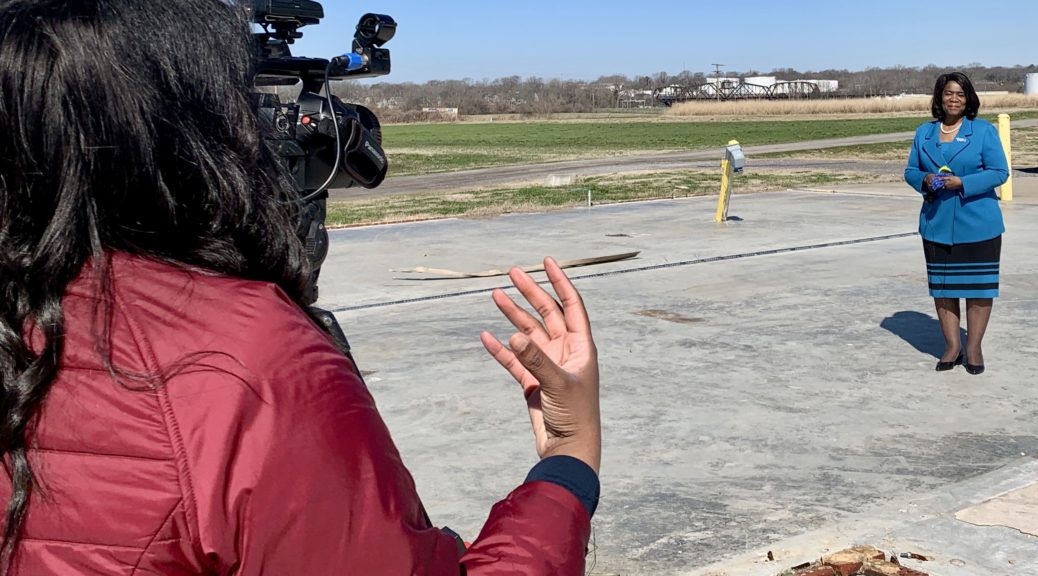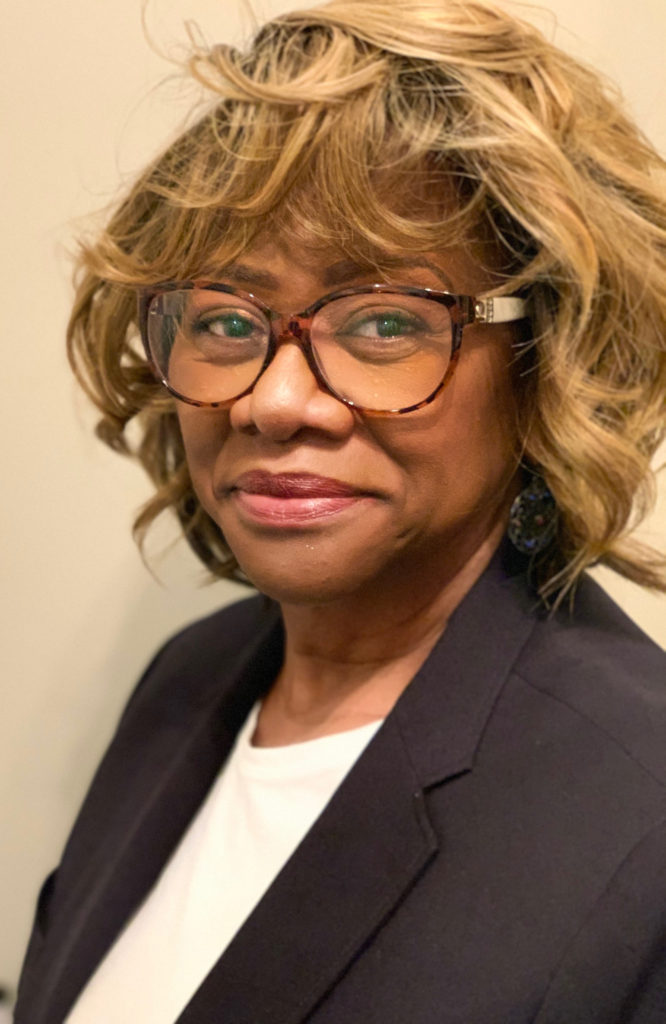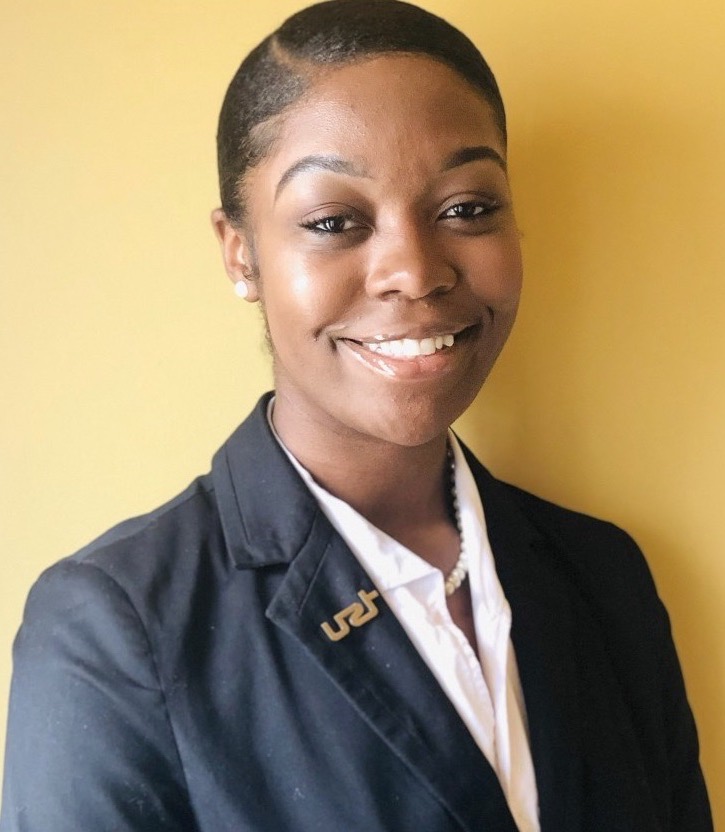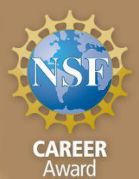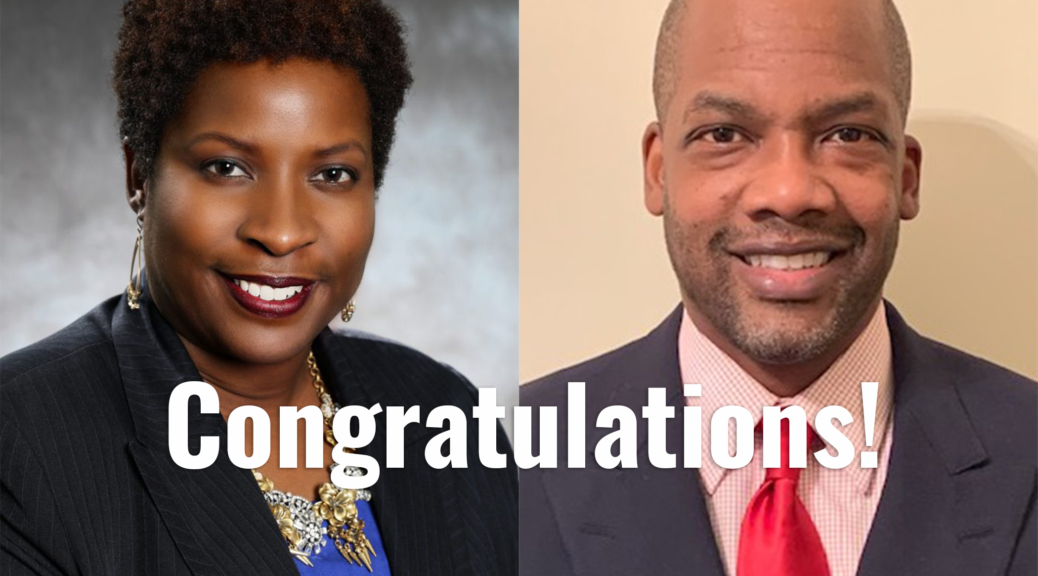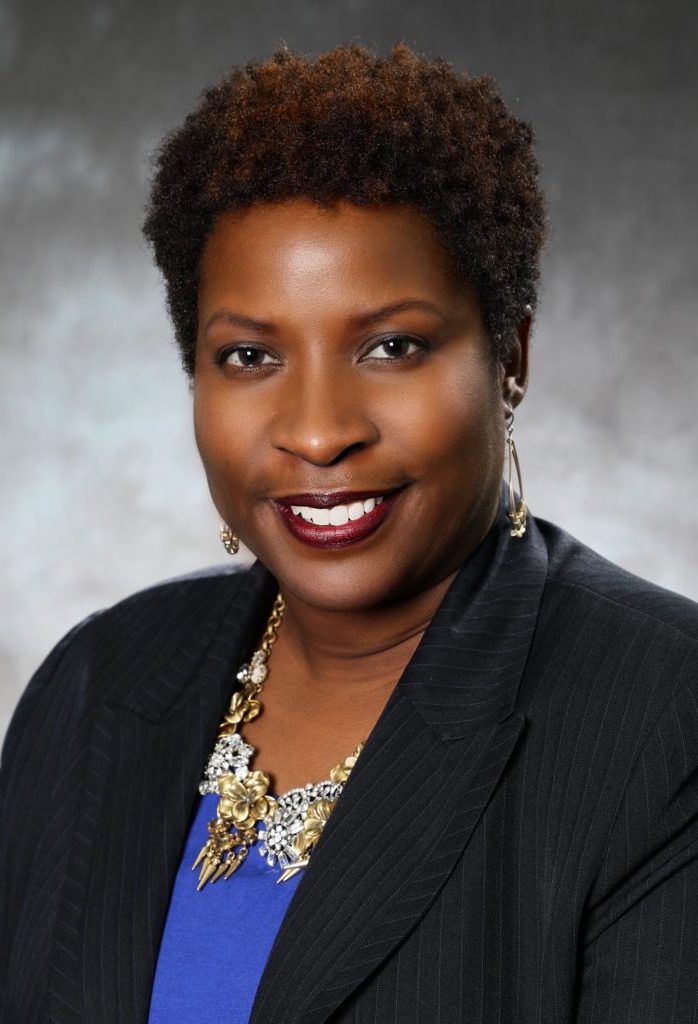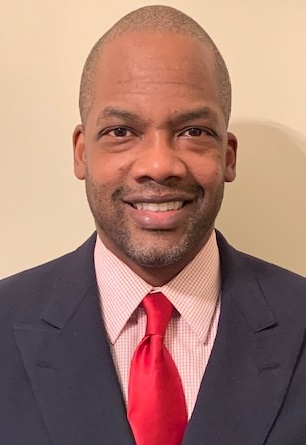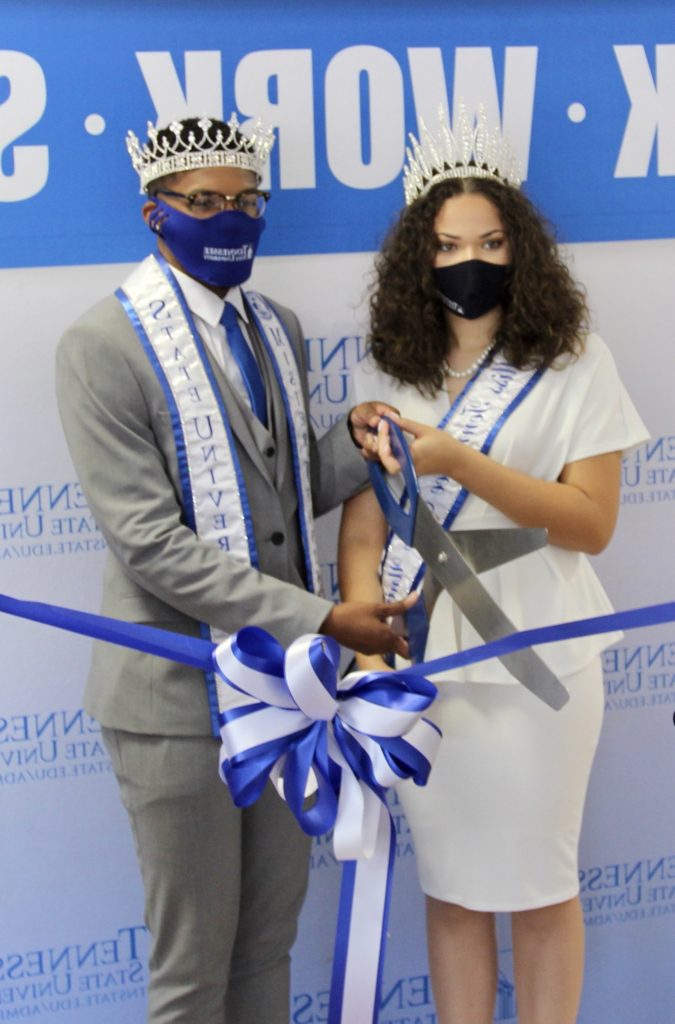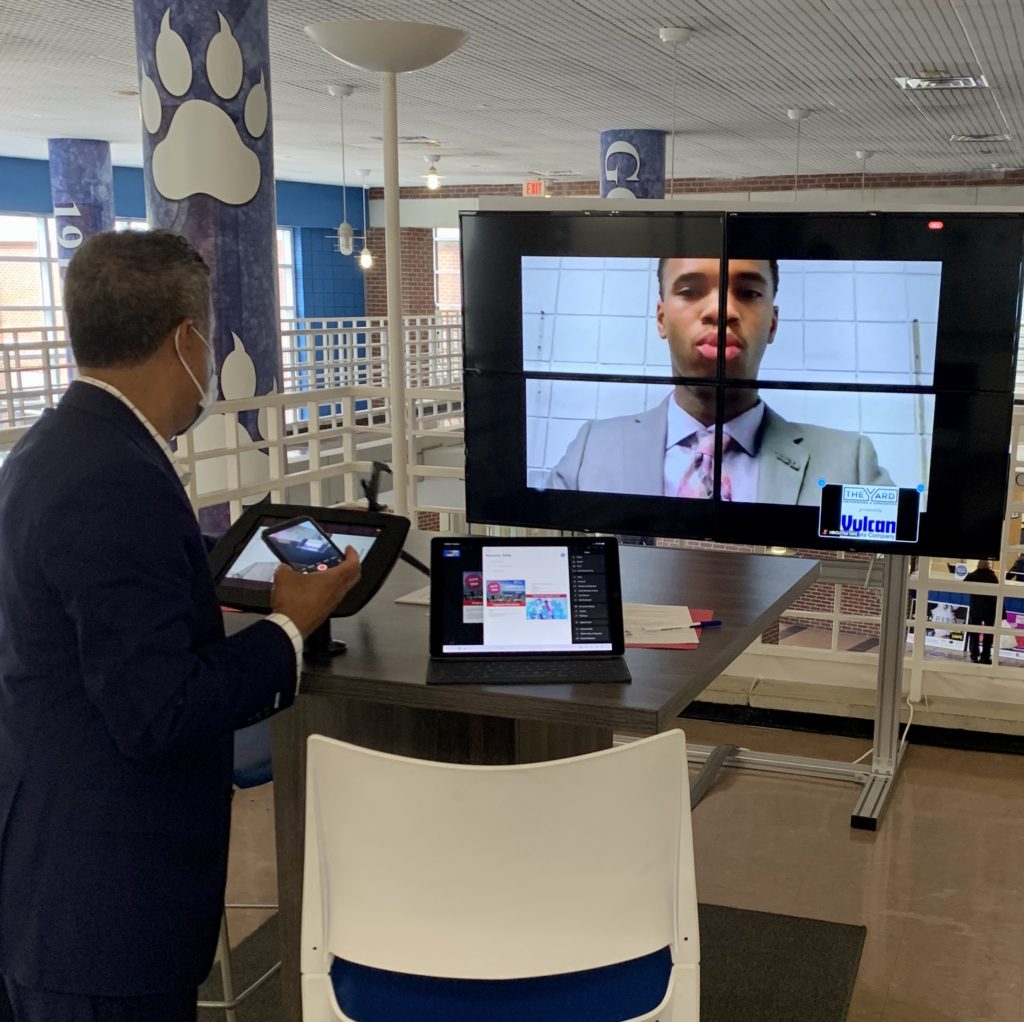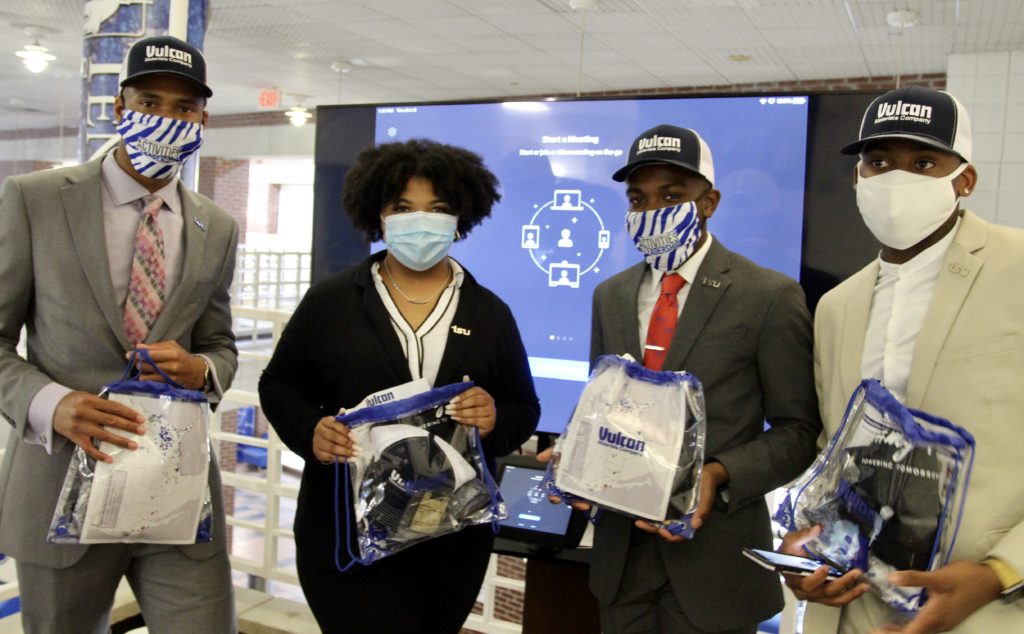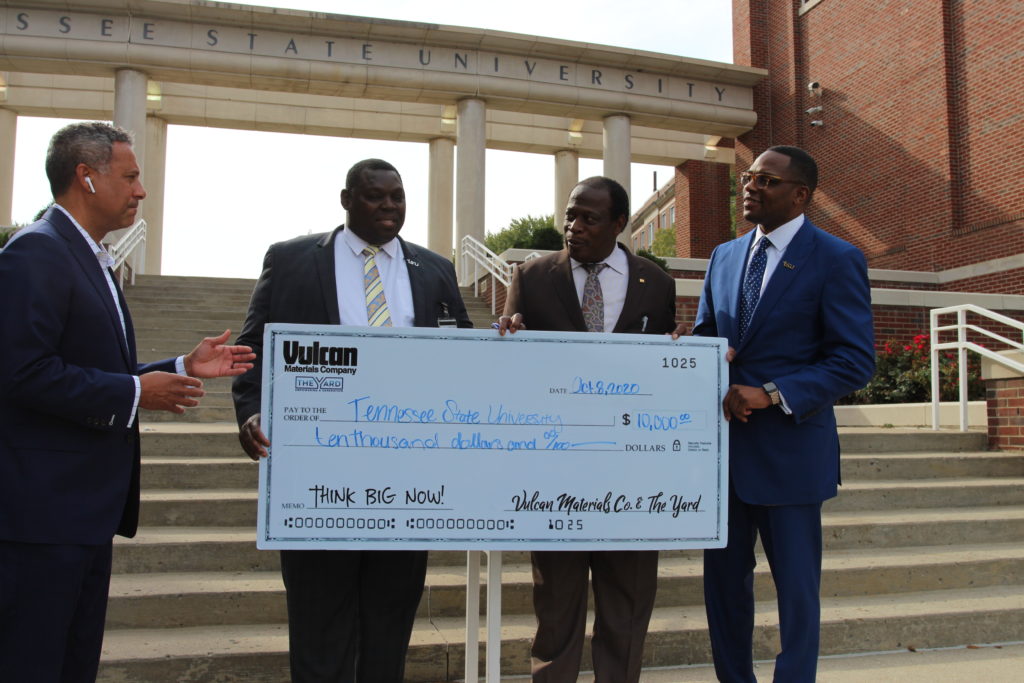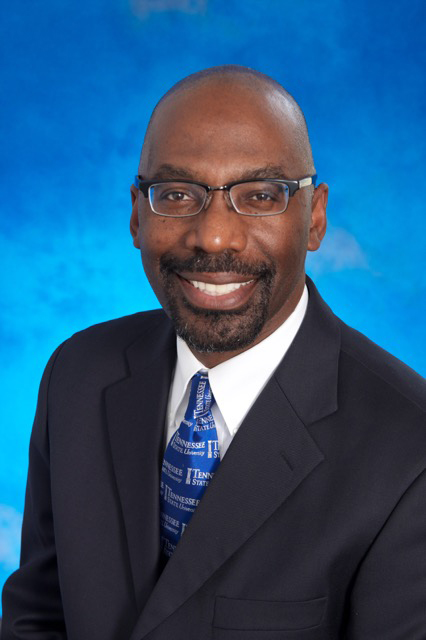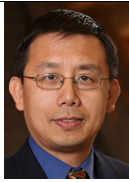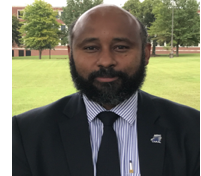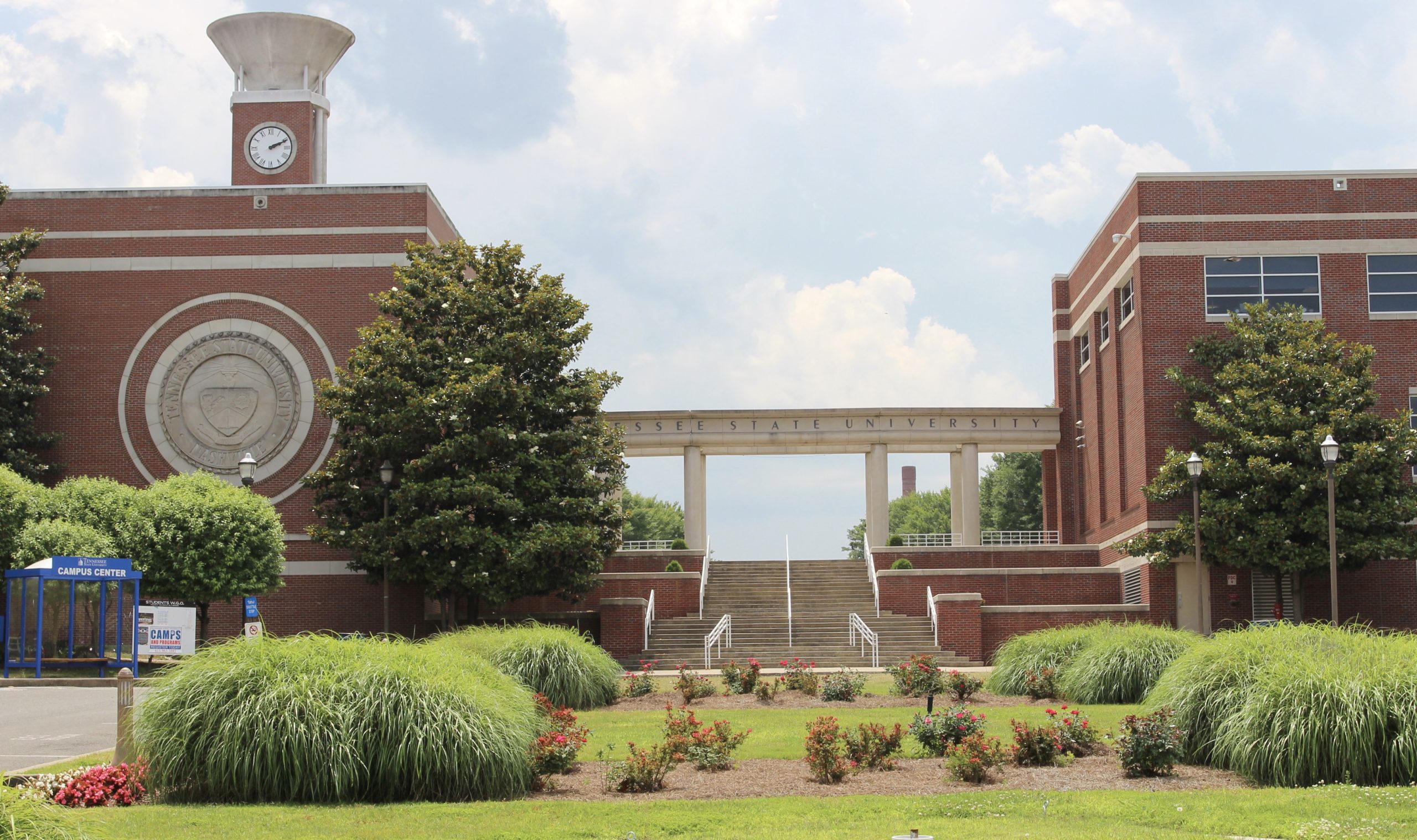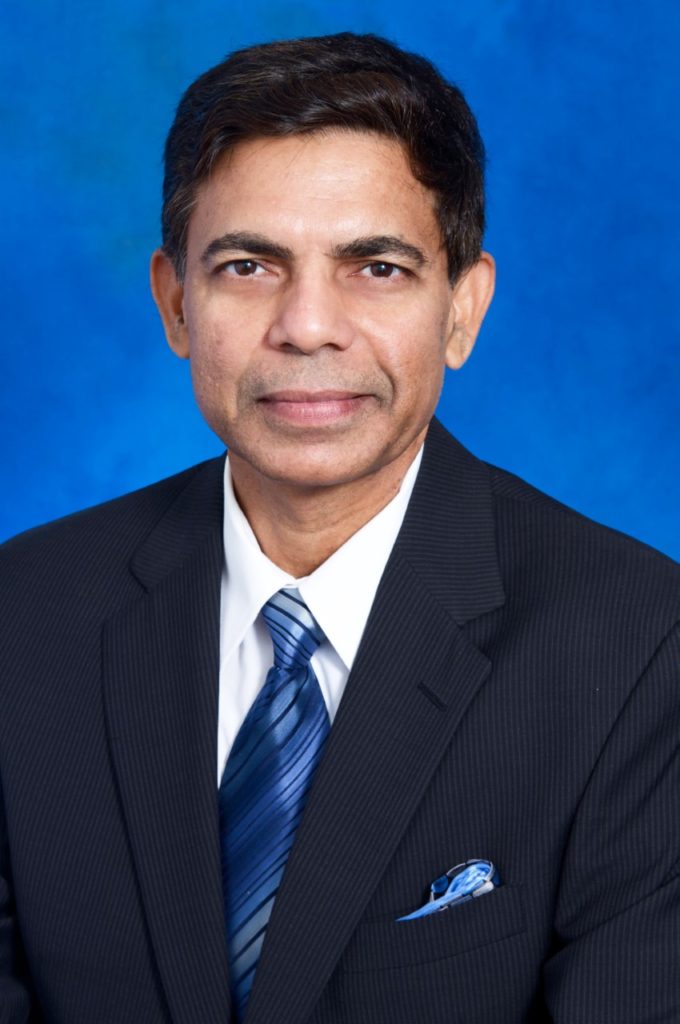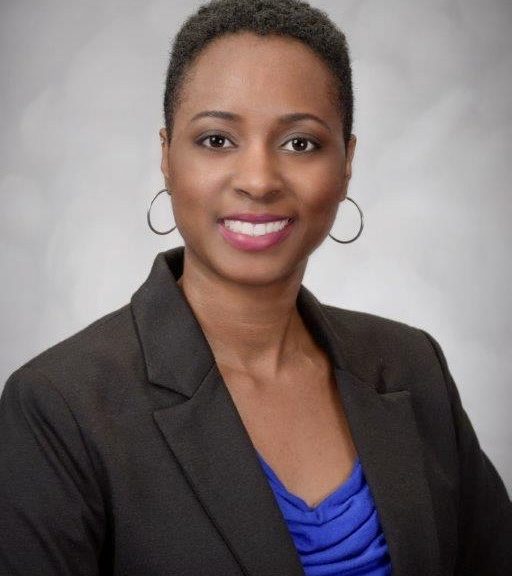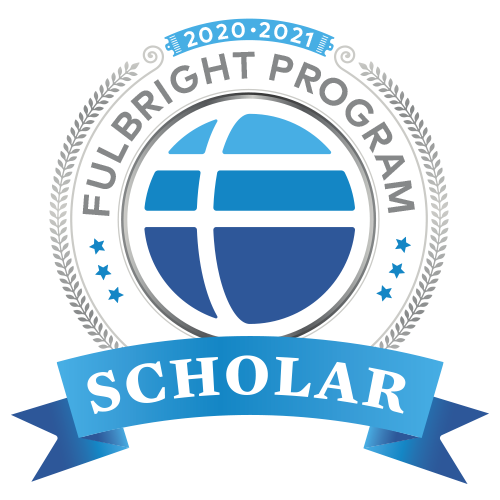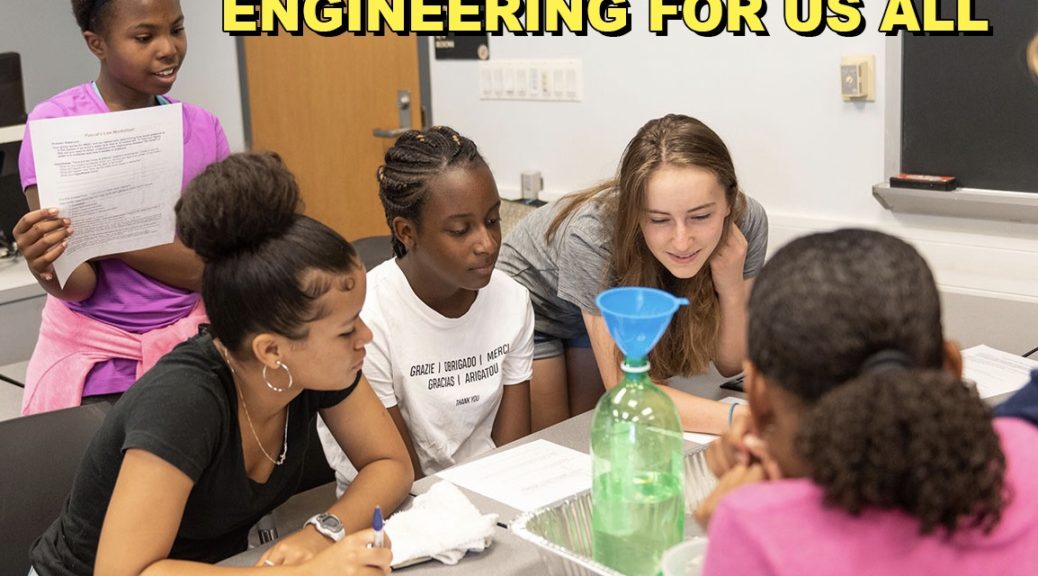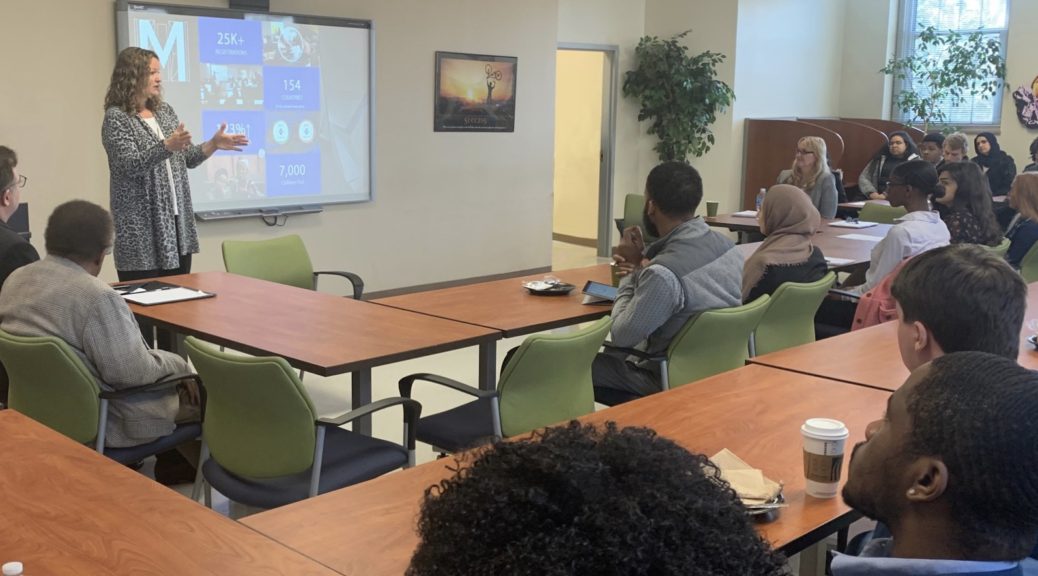NASHVILLE, Tenn. (TSU News Service) – Tennessee State University may have been caught in the devastation of a tornado that hit northwest and east Nashville early last March, but the campus family also experienced an outpouring of community support and resilience in the aftermath that has fostered healing and a spirit to rebuild.
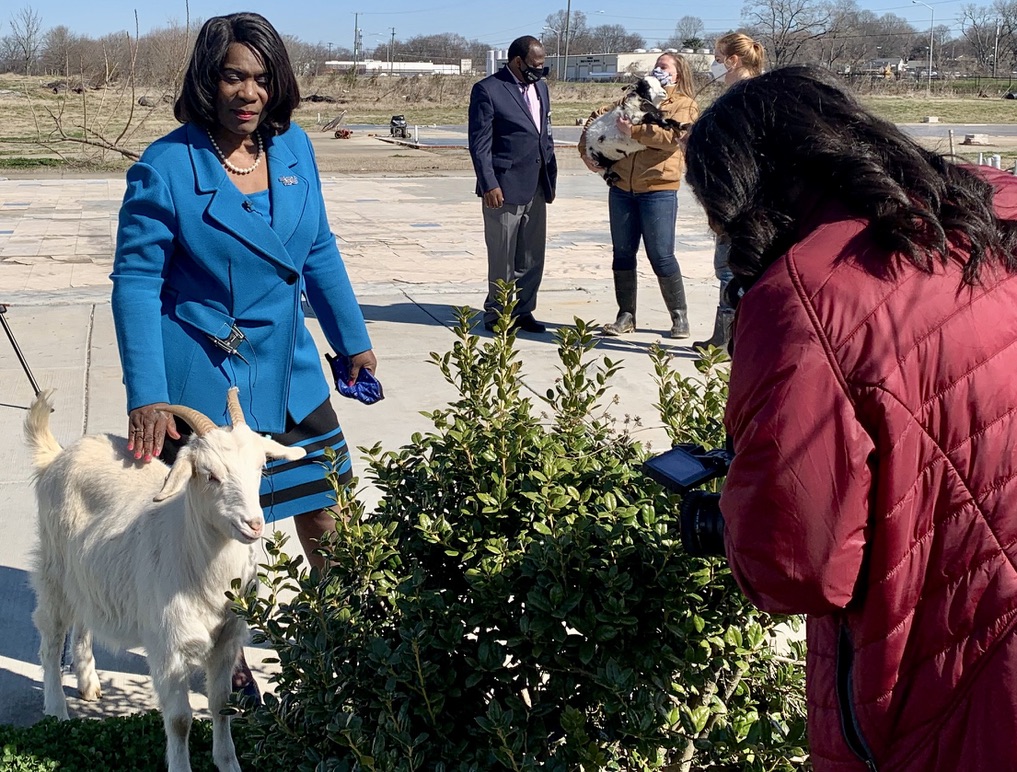
“It was so much outpouring of love and support. People came from different places on different days,” says Dr. Glenda Glover, president of TSU. “Nashvillians stuck together, some students were on spring break and when they came back, they jumped in. We were overwhelmed with the level of love and support and care.”
March 3 marked the one-year anniversary of the EF2 tornado that struck shortly after midnight. TSU’s Agriculture Farm took the biggest hit. Five of six structures, including research facilities, greenhouses, and a pavilion, were reduced to rubble. Two calves were killed, and several goats injured.
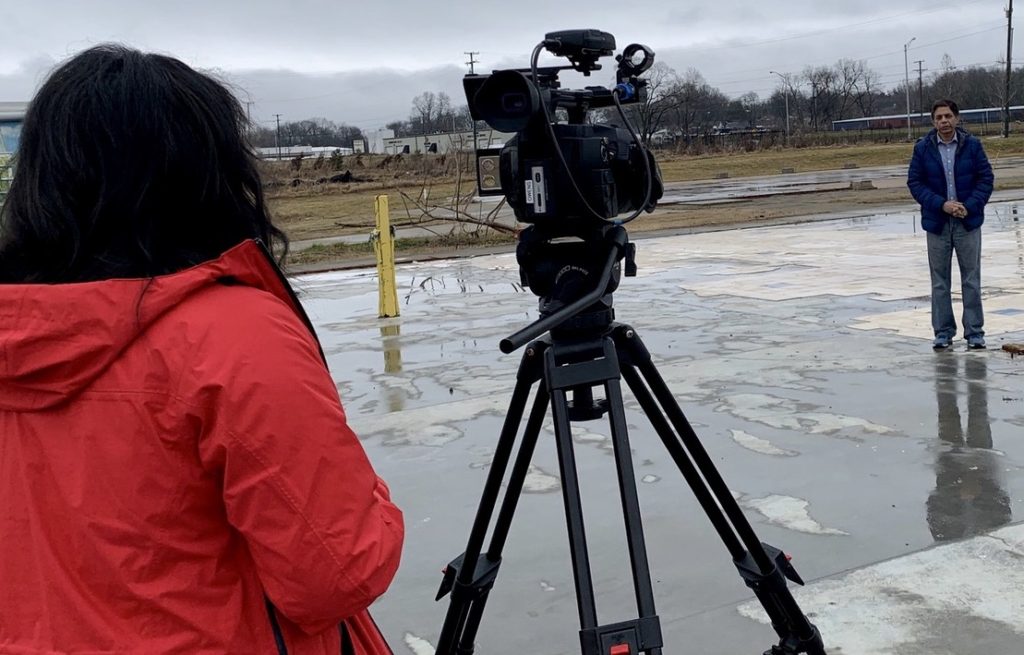
Other parts of the main campus received damage to signs and building rooftops, as well as downed power lines, uprooted trees, and other debris. About 85 students who did not go away for the spring break were on campus, but no injuries were reported.
Officials estimate total damage to the campus to be about $20 million.
However, amid the scars of what was lost or destroyed, one thing that has stood out is the volunteerism displayed by people from all walks of life. When asked what they remembered most about the tornado and the aftermath, faculty, staff, and students noted the general outpouring of support from total strangers.
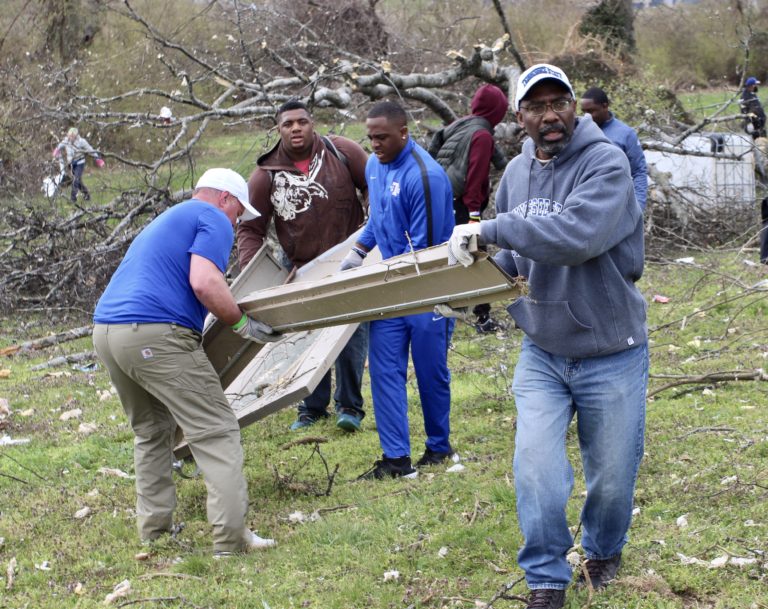
Jeia Moore arrived in Nashville from her spring break a few days after the storm hit.
“It was sad to see my campus like that because so much student work had been lost,” says Moore, a junior information systems major from Memphis, Tennessee. A year later, however, Moore is impressed with how the university has been able to pull through, even with the onset of the coronavirus at the same time.
“TSU, we are not going to be down too long. We are going to come back,” says Moore. “I am just happy that we are still able to function like we never missed a beat.”
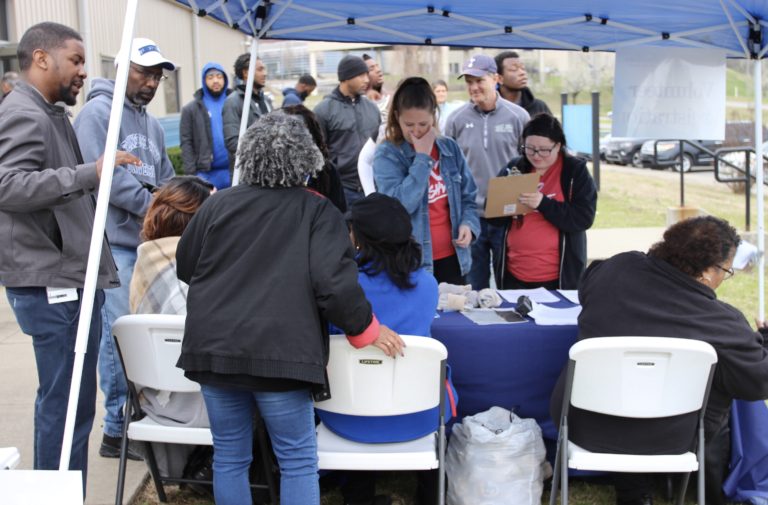
Bryce Daniel, a junior health sciences major from Fort Worth, Texas, was in his dorm room in Hale Hall when the storm hit. Hale Hall was not affected, but the sight of the destruction on the other side of campus was too overwhelming for Daniel to ignore.
“I immediately felt I needed to give back and help my campus recover,” says Daniel, who’s part of “Generation of Educated Men,” or GEM, a social and educational student group. The group mobilized and was among the first volunteers to join the cleanup effort on the Ag farm.
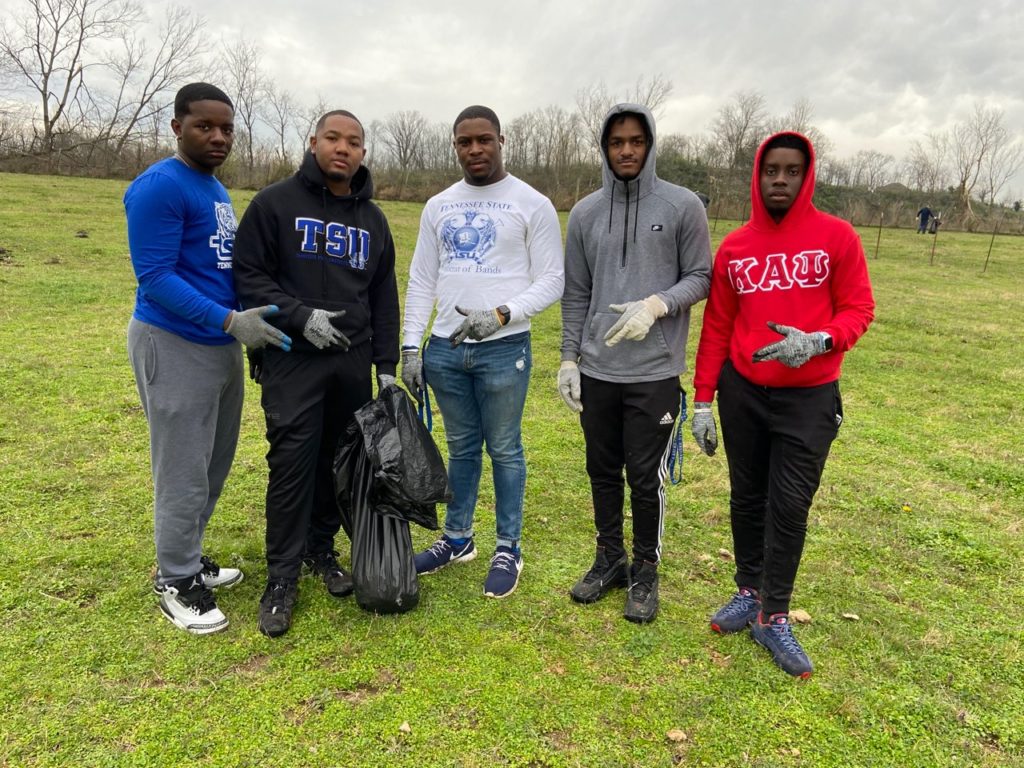
“I was glad to be safe and blessed to still have all of my things. So, it was just natural to go and give back to help clean up my campus,” says Daniel.
Some renovations on the main campus are either completed or ongoing. As for the Ag farm, TSU officials say discussions with state and federal agencies and insurance underwriters are ongoing, and construction should start soon and be completed by year’s end.
“Effort to reconstruct is slower, complicated by the COVID-19 pandemic. But we are moving along, it might take some time, but we will get there,” says Glover.
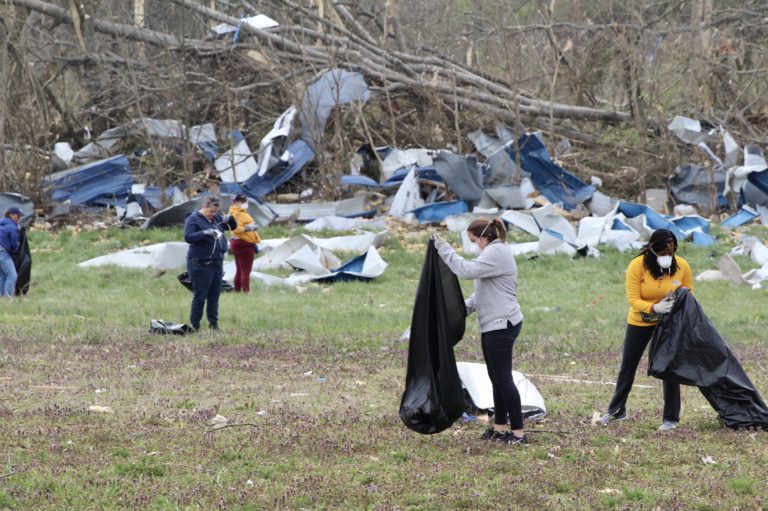
On the learning aspect, she says it’s been a grueling year, because things are at a slower pace. How students are taught changed drastically, with teaching and learning now about 85 percent virtual.
“We have some aspects that are not virtual, and we do require in-person learning, so we want to make sure that is taken care of,” says Glover. “Once COVID has run its course, we believe that we will be moving at a faster pace.”
Dr. Curtis Johnson, associate vice president and chief of staff, heads the reconstruction effort at TSU. He says recovery will take time, but the main concern is making sure teaching and research are not affected.

“We look forward to rebuilding a better campus,” says Johnson. “We expect our rebuilding to have better structure, better technology. ”
Dr. Chandra Reddy, dean of the College of Agriculture, agrees, saying the goal is to “make sure all of our buildings and research facilities are much better and much stronger.”
On the show of support, Frank Stevenson, associate vice president of student affairs and dean of students, says in the aftermath of the storm he saw a campus community determined to bounce back, “not only to represent Tiger pride, but the city of Nashville strong.”
“Our students, faculty, staff, everyone put the gloves on, rolled up their sleeves and were committed to making our campus continue in the space of beauty,” says Stevenson.
GEM member Derrick Sanders, a junior secondary English education major from Cincinnati, Ohio, who drove into Nashville the next morning amid the destruction, says “it felt so good to see people come together for the enhancement of TSU.”
“I saw people from the community, people from different churches, even students giving out anything they had to help. It just felt good to know that we are a family, and we can help each other,” says Sanders.
